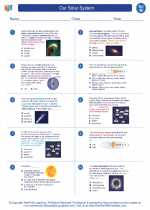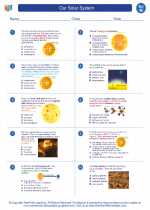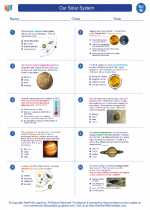Neutralization Reaction
A neutralization reaction is a chemical reaction between an acid and a base that results in the formation of water and a salt. The reaction involves the combination of hydrogen ions (H+) from the acid and hydroxide ions (OH-) from the base to form water. The remaining ions combine to form the salt.
The general equation for a neutralization reaction is:
For example, when hydrochloric acid (HCl) reacts with sodium hydroxide (NaOH), the neutralization reaction can be represented as:
HCl + NaOH → NaCl + H2O
The resulting solution is neutral, with a pH of 7, because the acidic and basic properties have been neutralized by the formation of water and the salt.
Study Guide for Neutralization Reaction
- Definition: Understand the definition of a neutralization reaction and be able to identify the reactants and products involved.
- Types of acids and bases: Learn about different types of acids and bases that can participate in neutralization reactions, including strong acids and bases, weak acids and bases, and amphoteric substances.
- Chemical equations: Practice writing and balancing chemical equations for neutralization reactions, including identifying the salt and water formed in the reaction.
- Applications: Explore real-life applications of neutralization reactions, such as in the production of antacids for stomach acidity and in the treatment of acidic soil with basic substances.
- pH scale: Understand how neutralization affects the pH scale and how the concentration of hydrogen ions and hydroxide ions changes during the reaction.
- Titration: Learn about the technique of titration, which involves using a neutralization reaction to determine the concentration of an acid or a base in a solution.
By mastering the concepts and applications of neutralization reactions, you will gain a deeper understanding of the behavior of acids and bases and their role in chemistry.
Good luck with your study of neutralization reactions!
.◂Science Worksheets and Study Guides Eighth Grade. Our Solar System

 Worksheet/Answer key
Worksheet/Answer key
 Worksheet/Answer key
Worksheet/Answer key
